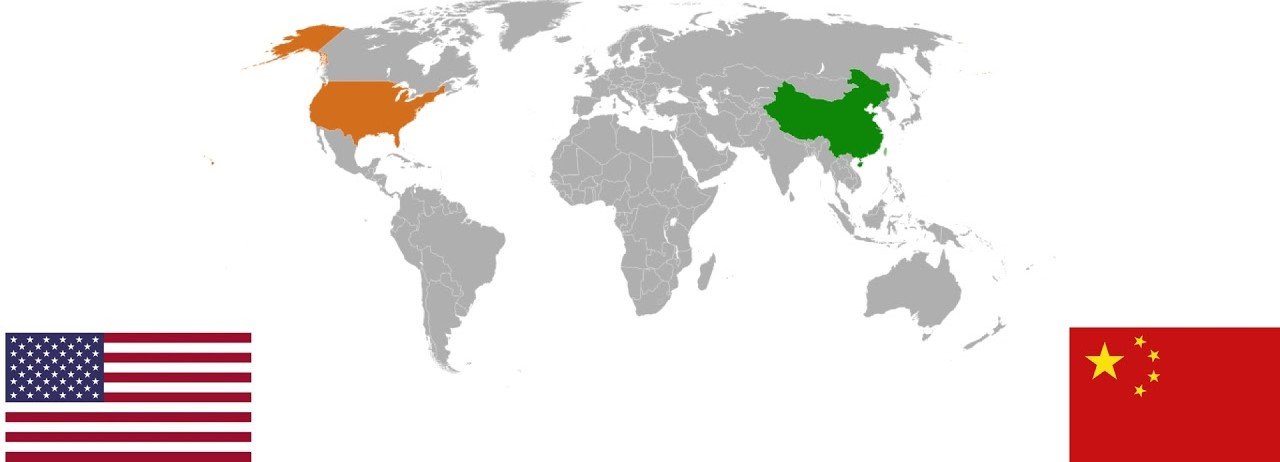

Feb
Whenever discussions surrounding geopolitical hot spots such as the Middle East or North Korea emerge, most experts usually end up choosing a binomial “United States vs. Russia” perspective. Indeed, it is quite remarkable how China is almost always the entity portrayed as the adversary of the United States from an economic perspective but on the let’s say geopolitical front, Russia is still the go-to adversary.
Just how realistic is this perspective in 2020 and beyond?
In our view, not very.
The ChinaFund.com team believes it’s about time for geopolitical experts to wrap their collective heads around the fact that from a military interest perspective as well, China is the number one game in town at this point in time. In other words, it might not be the most intelligent approach in the world to ignore the #2 economy worldwide in terms of GDP or the #1 one on a PPP basis. While China does still have a fair bit of catching up to do to reach parity with the West on the (geo)political sophistication front as well as in many other key dimensions, it is “inevitable” to borrow a Hollywood catchphrase.
A textbook example to that effect is represented by North Korea. It is a myth that the Chinese authorities are madly in love with the Kim regimes, not at all. However, in light of the fact that China is “surrounded” by US allies, it has decided to tolerate the current North Korean regime. Not because their values are aligned or because the economics of it all make sense, but rather because the Chinese authorities prefer dealing with a known evil than a potential unknown one.
As such, China is the country that holds the key in the North Korean equation.
Should China for example choose to meaningfully put an end to its imports from North Korea (especially in the textile industry), the North Korean economy would essentially end up being choked. Again, “meaningfully” being the operative word because while China has engaged in criticism when it comes to official rhetoric and even instituted sanctions (yes, including textile industry-related ones), it is not enough if proverbial backdoor deals through unofficial channels persist.
As such, despite the proverbial West imposing sanction upon sanction on the North Korean regime, the economic status quo can persist in Pyongyang for as long as China continues offering the North Koreans a more or less official lifeline. It is a matter of simple logic to understand that if a series of countries you didn’t really do much (if any) business with in the first place impose sanctions on you, the effects won’t exactly be devastating.
Again, China holds all the cards in this particular situation and the exact same principle is valid when it comes to a wide range of geopolitical hot spots. Despite the fact that China “brands” itself as a non-interventionist superpower, it is impossible to reach such an economic size without being de facto considered the elephant in the room.
Are China’s non-interventionist claims nothing more than hot air?
No, not exactly.
As mentioned rather frequently here on ChinaFund.com, China has been what one could consider a non-interventionist power throughout most of its not multi-century but downright multi-millennia history. Simply put, the Chinese have not exactly made a name for themselves through expansionism in the traditional/military sense and for the most part, the same principles are valid today.
However, this doesn’t mean China doesn’t have clear geopolitical interests of its own or that these geopolitical interests are never contradictory to those of Western nations. Even if China would set a goal for itself not to get involved in any geopolitical shenanigans, it would be a most unrealistic one in light of the fact that not being firm when it comes to certain aspects pertaining to geopolitical hot spots would ultimately backfire and effect its economic interests as well.
Is China a primarily economics-oriented player?
Most definitely, unlike nations such as the previously-mentioned Russia.
However, it would be childish at best and reckless at worst to assume that geopolitics and economics are simply two parallels, with one never touching/affecting the other. In such a utopic world, sure, we would be able to paint the picture of a geopolitical status quo in which China never aims to assert dominance. Realistically speaking, however, that is simply impossible.
Does it mean China always wants to get involved in geopolitical hot spots?
No.
Does it mean China will always be at the center of attention when conflicts emerge?
No.
It simply means that in pretty much all geopolitical hot spot situations, China will be there taking notes and looking after its interests. Not always in a confrontational manner, not always in a public manner. For those familiar with let’s call them the German approach to geopolitics, we can consider this the Asian version of Germany’s Realpolitik model.
As a conclusion, let’s just say that the Pavlovian instinct (no pun intended) of always looking in the direction of Russia when things get tricky geopolitically speaking is (severely) outdated. While this doesn’t mean Russia isn’t a force to be reckoned on the geopolitical front (much less so on the economic one, however), it does tell us that in more and more future situations, China will end up representing the geopolitical elephant in the room.
To stay on top of hot spot-related developments or simply pick our brains when it comes to matters of geopolitics, send us a message by accessing the Contact section of ChinaFund.com. Alternatively, to get a general idea of what we can offer, visit the Consulting section of our website or to learn a thing or two about who we are, the About Us one.
